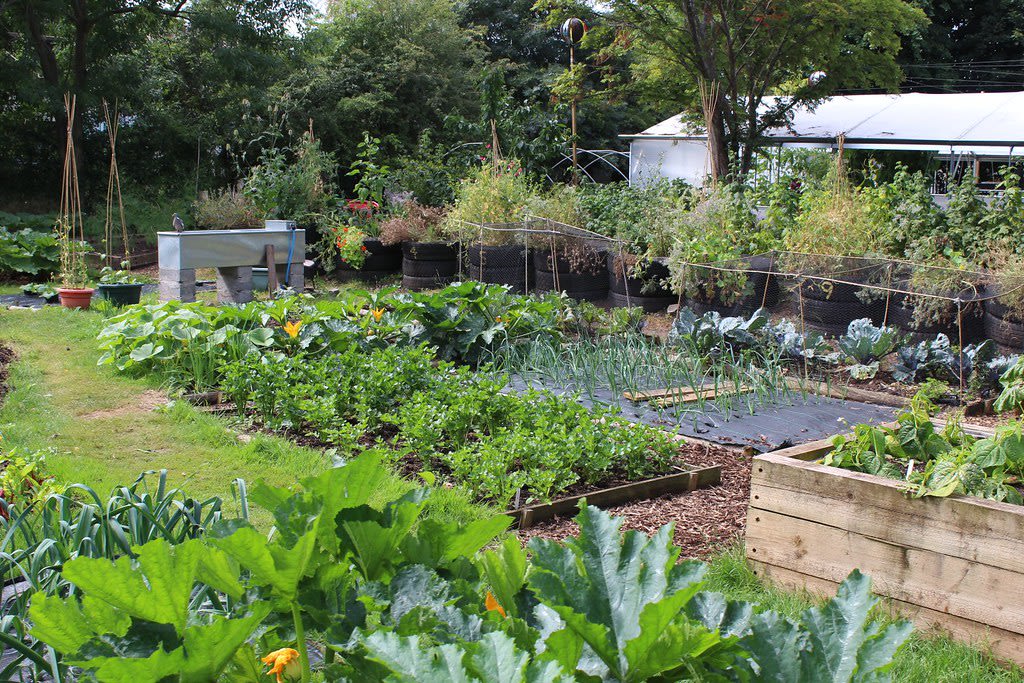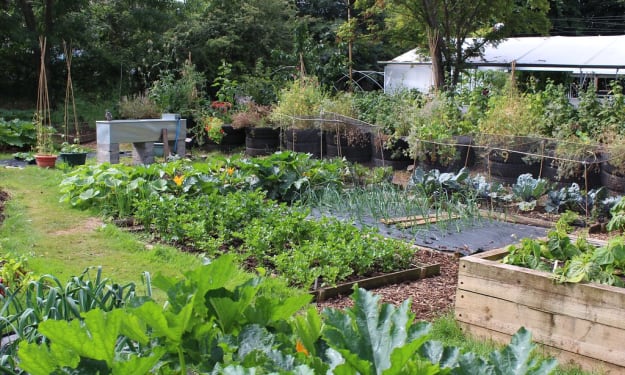
Compost is a dark, crumbly material that forms when organic matter decomposes under certain conditions. It is an excellent source of nutrients for plants and is often used to improve soil fertility in gardens, farms, and landscapes.
Composition:
Compost is made up of a combination of organic materials, including food scraps, yard waste, leaves, grass clippings, and animal manure. These materials are rich in nutrients, such as nitrogen, phosphorus, and potassium, that are essential for plant growth. The ideal compost mix includes a balance of "brown" materials, such as dried leaves and twigs, and "green" materials, such as fresh grass clippings and kitchen scraps.
To make good quality compost, it's important to pay attention to the composition of the materials you use. The ideal compost mix should have a balanced ratio of carbon-rich "brown" materials to nitrogen-rich "green" materials. This balance is important because the microorganisms that break down the organic matter in the compost pile require both carbon and nitrogen to function effectively.
Brown materials such as dried leaves, straw, hay, sawdust, and shredded paper are high in carbon, which provides the energy source for the microorganisms in the compost pile. They are also important for providing structure and aeration to the compost pile. Brown materials should make up about 60-70% of the total compost mix.
Green materials such as grass clippings, vegetable and fruit scraps, coffee grounds, and manure are high in nitrogen, which is an essential nutrient for plant growth. They also provide moisture to the compost pile. Green materials should make up about 30-40% of the total compost mix.
It's important to avoid adding certain materials to the compost pile, as they can interfere with the composting process or introduce contaminants. These materials include meat, dairy, and oily foods, as well as diseased or pest-infested plant material. Additionally, it's best to avoid using materials that have been treated with pesticides or herbicides, as these chemicals can persist in the compost and harm plants or beneficial microorganisms.
To create good quality compost, it's important to maintain the proper balance of materials and keep the compost pile moist and well-aerated. A well-maintained compost pile can produce nutrient-rich compost in as little as a few weeks to a few months, depending on the materials used and the environmental conditions.
Process:
Composting is a natural process that occurs when microorganisms, such as bacteria, fungi, and protozoa, break down organic matter into simpler compounds. The microorganisms responsible for decomposition require oxygen, moisture, and a balance of carbon and nitrogen to thrive.
The composting process typically takes several weeks to several months, depending on the materials used and the environmental conditions. During the process, the organic matter heats up as the microorganisms break it down. The temperature inside a compost pile can reach up to 160 degrees Fahrenheit (70 degrees Celsius). As the process continues, the organic matter breaks down into a dark, crumbly material that resembles soil.
Benefits:
Composting has numerous benefits for both the environment and gardeners. Some of the key benefits include:
- Reducing waste: Composting diverts organic waste from landfills, where it can release methane, a potent greenhouse gas.
- Improving soil fertility: Compost is a natural fertilizer that provides plants with essential nutrients and improves soil structure, water-holding capacity, and aeration.
- Reducing the need for synthetic fertilizers and pesticides: Compost can help to reduce the need for chemical fertilizers and pesticides, which can harm the environment and human health.
- Supporting biodiversity: Composting helps to promote the growth of beneficial microorganisms in the soil, which can support plant growth and enhance biodiversity.
Overall, composting is a simple and effective way to reduce waste, improve soil fertility, and promote sustainable gardening practices.
About the Creator
Love The Green
Welcome to my page,I hope to share my experiences, insights, and knowledge with fellow nature enthusiasts.Together, we can celebrate the wonders of the natural world, and work to protect and preserve it for future generations to enjoy🌿🌲






Comments
There are no comments for this story
Be the first to respond and start the conversation.